Ricochet is the best place on the internet to discuss the issues of the day, either through commenting on posts or writing your own for our active and dynamic community in a fully moderated environment. In addition, the Ricochet Audio Network offers over 50 original podcasts with new episodes released every day.
 Is Food Waste Really Your Problem?
Is Food Waste Really Your Problem?
If you’re of a certain age, especially growing up in Heartland, USA, you heard these words from a parent at the dinner table while growing up: “Clean your plate. There are starving kids in China.”
That wasn’t wrong. Millions died from starvation during Chairman Mao’s Communist cultural revolution in China during the 1960s and early ’70s. It’s a sordid tale. The “Great Leap Forward,” Mao called it. To the grave, perhaps.

But my mom was more focused on eliminating food waste in our home. After all, we were often on a tight budget in rural Oklahoma, and food was money. We didn’t have a lot to waste. And my mom and dad could get very creative with the food we had. Ever enjoyed chicken-fried steak? As products of the Great Depression and Dust Bowl, they understood it better than I did.

Food waste is still money. Just ask any food manufacturer. They have been working overtime for years to eliminate waste from their production. I would know, having spent more than two decades in the food industry and toured dozens of plants, from bakeries to fruit and vegetable processors.
My first memory of the food industry was touring a long-gone Wilson meat slaughterhouse and processing plant in Oklahoma City as a young high school junior. The visuals remain fresh in my mind 50 years later. Not everyone finished the tour. Very little from any cow or pig went to waste. The last thing made on the production line, I remember, was lard. I learned a lot on that visit, not knowing that I would eventually go on to a 22-year career in the food industry.
Food waste is throwing money away, and food makers don’t enjoy large profit margins for their products. Neither do grocery stores. If you can legally and safely “rework” discarded products, you find a way.
But when it comes to food waste, food makers are not the problem. Neither are grocery stores, farms, or even most restaurants. Other food service operations and home consumption seem to be where most of the waste occurs.
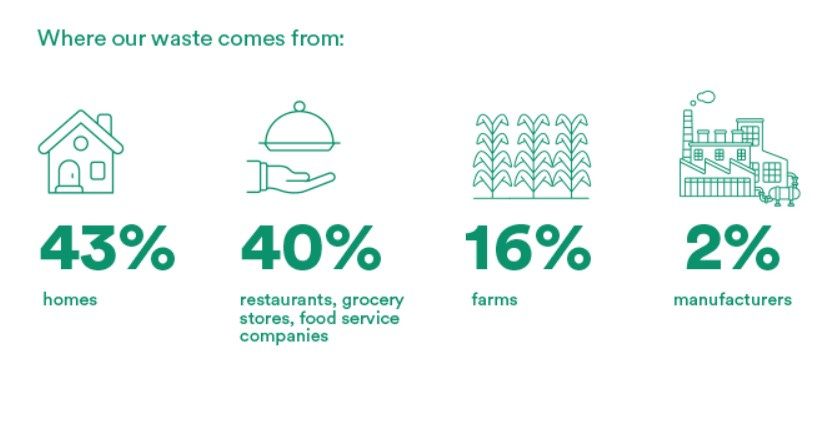
How much? Estimates vary, but somewhere between 80 billion and 100 billion pounds annually. Waste hauler RTS translates it for you here.
Just how much food do Americans waste? Here’s some “food” for thought: While the world wastes about 1.4 billion tons of food every year, the United States discards more food than any other country in the world: nearly 40 million tons — 80 billion pounds — every year. That’s estimated to be 30-40 percent of the entire US food supply, and equates to 219 pounds of waste per person. That’s like every person in America throwing more than 650 average-sized apples right into the garbage — or rather right into landfills, as most discarded food ends up there. In fact, food is the single largest component taking up space inside US landfills, making up 22 percent of municipal solid waste (MSW).
We indeed waste a lot of food. But we still have lots of it. We use as much as we can, but much still is tossed. And as for “food insecure” people, what does my food waste have to do with them?
There are a couple of easy answers, but not many. Organizations like Feeding America work on “food rescue” to help feed “food insecure” families through food banks and other distribution programs. That’s great. And there are plenty of families in need out there. After all, about one in seven (over 40 million Americans) are on food stamps (Supplemental Nutritional Assistance Program, now called SNAP). Most of us want to help people in need.
But it’s a matter of simple economics. If we waste less, we spend less (except for Biden-caused inflation with an assist from often-government-inspired supply chain issues). We increase the food supply, which can help keep prices in check. How well stocked are your grocers these days? Last Thursday, my local Harris Teeter was pretty bare of chicken and lots of other products.
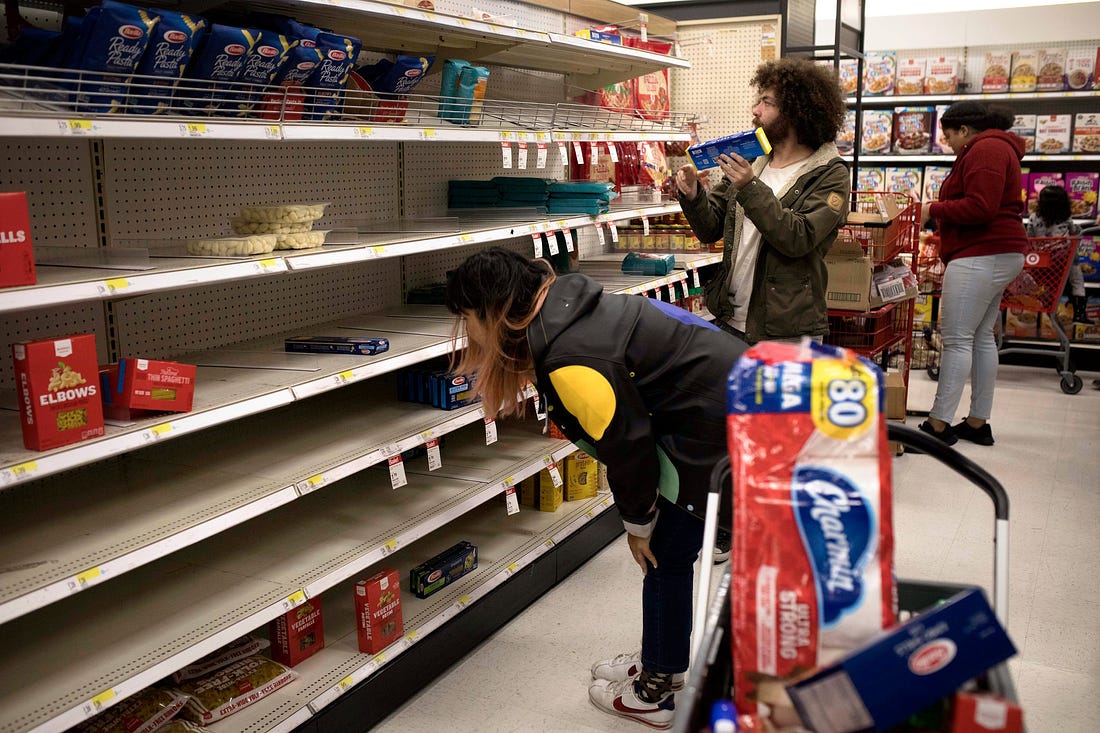
And there is one straightforward way we can manage food waste, by doing a better job with food labels.
A story. When I resided in Philly, a favorite radio show was Rich Zeoli’s on 50,000-watt 1210 AM WPHT. He features a terrific cohost and former television news anchor, Dawn Stensland Mendt. I remember hearing her say that she throws away food if it comes within a week of the expiration date.
You’re throwing away a lot of perfectly good food and lots of money, I thought. I did a segment or two on Rich’s show regarding food labels, working to dissuade Dawn and her disciples from the misconception. I have no idea if I was successful, but it underscores that food date labeling continues to be a problem. And it is not necessarily her fault.
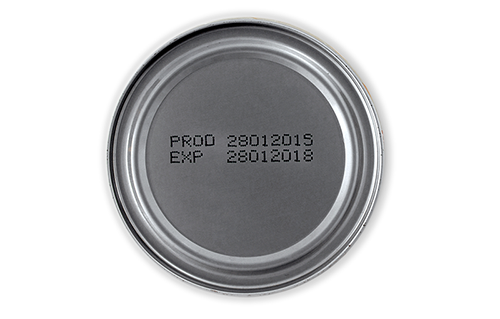
I’m persuaded one of the significant reasons we toss perfectly good foods from our pantry and refrigerators is our poor understanding – and many food companies’ pathetic job – of “food date labeling.” Allow me to share a few good and not-so-good examples.
First, the food industry has worked tirelessly to help consumers—governments, less so. Food product manufacturers and retailers developed a voluntary system quickly embraced by 80 percent of the packaged food industry. It separates food date labeling between “safety” and “quality” concerns.
Second, one of America’s more significant food wasters is the federal government. For example, if you’re running a production line of pasta sauce with meat, a USDA regulated facility, and the inspector doesn’t show up to “inspect” the production, you may be required to toss hundreds of cases of perfectly good product into a landfill. Same with foods that are safe but have the wrong label affixed. USDA features a largely out-of-date “continuous inspection” regime, even for processed foods that are heat-treated to kill any pathogens.
Most food recalls are based on mislabeling (failure to disclose allergens, for example) than over safety issues because production lines put the wrong label on certain products.
During the pandemic, government-forced lockdowns resulted in millions of food being destroyed. We have a potato shortage today because of it.
And don’t get me started on how much waste occurred from some of Michelle Obama’s ill-advised food nutrition mandates that, fortunately, have been eased over the past few years.
And because dairy waste is universal, this British food retailer is scraping use-by dates on milk entirely.
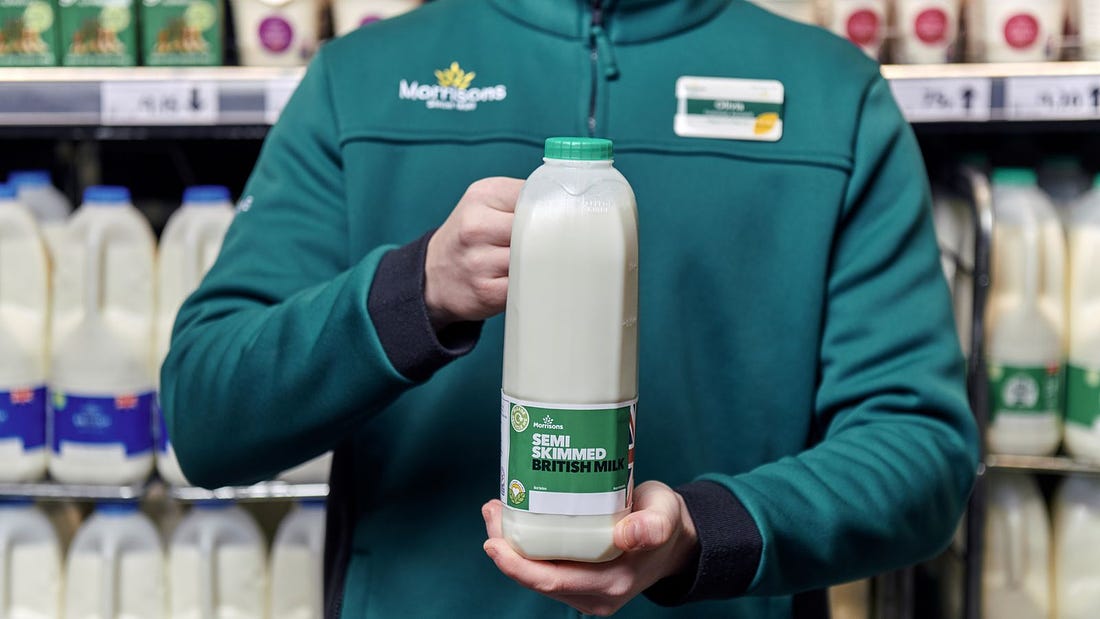
Understanding food date labeling
If your product doesn’t have a long shelf life and might post a safety issue, it has a “use by” or “expires” date. If it is more of a quality issue – the product is safe to use past a specific date but might experience some reduction in “quality” – then you will see the words “best by” or “best if used by” on the package. The fresh egg industry provides a great example.
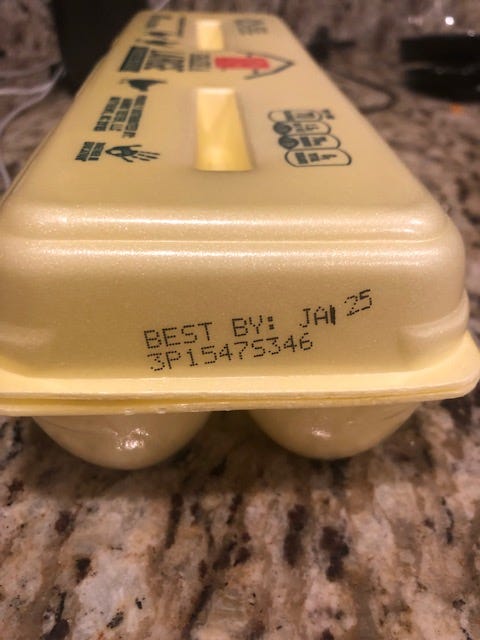
My eggs here are perfectly good through and beyond January 25, probably a week or two. No need to toss them out after the date. The production codes you often see next to dates help with tracing and recalls if needed. Most products are suitable for at least a week after those best-by dates.
Sadly, not all such labels are so instructive, or easy to read. Take this private label salad dressing from retailer Harris Teeter, which clearly is consumer-unfriendly.
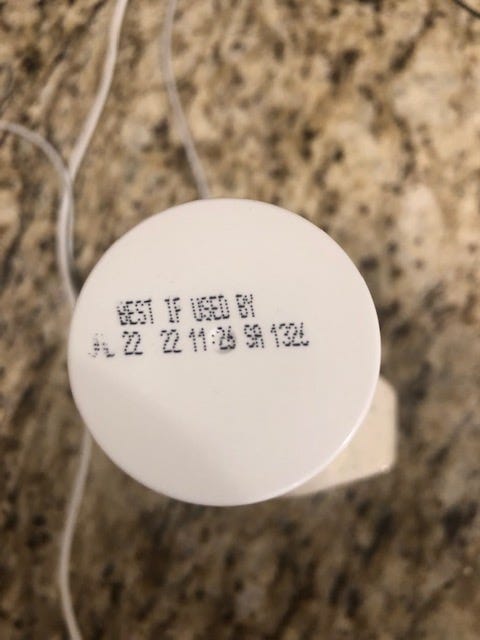
I get that it has a quality date of maybe July 2022, but how many consumers will get that? At least it’s on the top of the lid, easy to see.
And there are certain imported foods, like a personal favorite, Prosciutto from Italy. No quality or expiration date, but a “purchase by” date. That’s helpful, but how long is it suitable after I purchase it? This company needs to do better. But perhaps most Prosciutto eaters like me consume this well before the sell-by date. Let’s hope so.
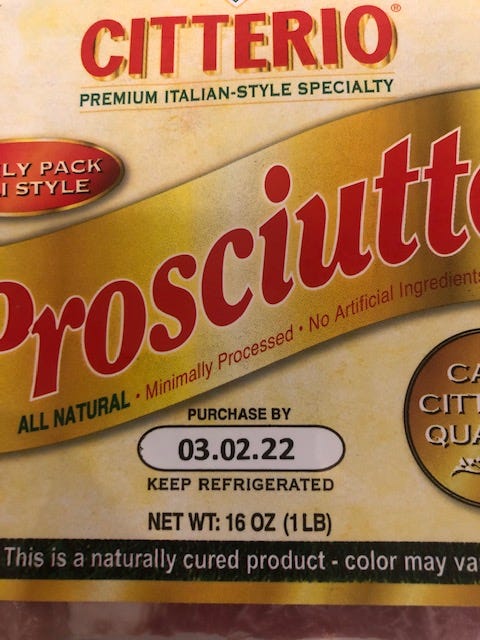
Some other examples. Here’s some Pace salsa. Please use either “best if used by” or “use by” before the date listed here. Really, Campbell Soup (owner of Pace)? I thought you agreed to the industry standard for date labeling a couple of years ago?
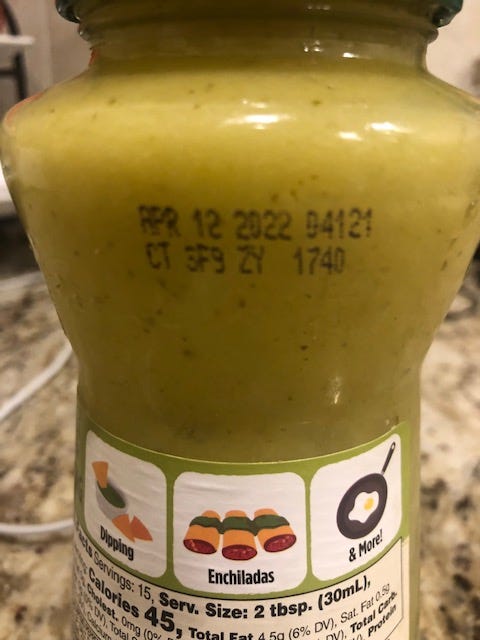
And here’s some private label shredded cheese from my local grocery store. Good job!
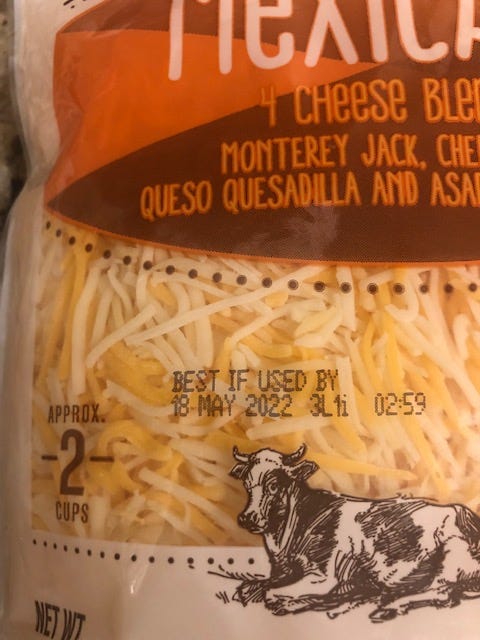
And my grocery store fresh salsa does a better job labeling than Pace.
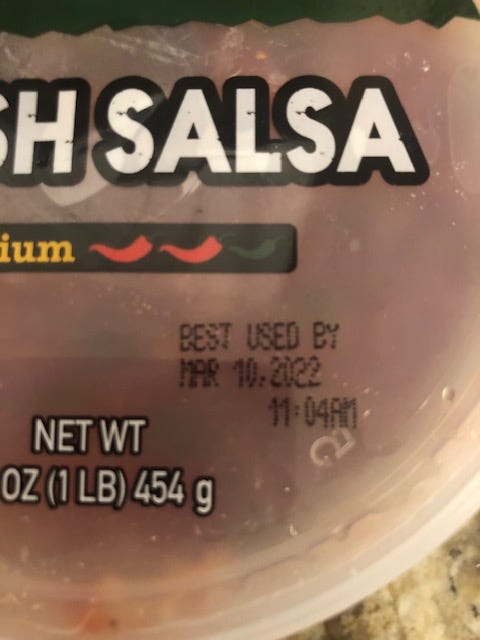
I hope this is helpful. I’m just trying to help you reduce your food waste. Some waste is inevitable, as circumstances and excess purchases sometimes get in the way. And don’t let anyone shame you, or so-called consumer advocates blame food companies for making “too much food.” It’s what helps keep prices affordable and food plenty for all of us. I still have some food rationing coupons used by my grandparents during World War II. No, thank you.
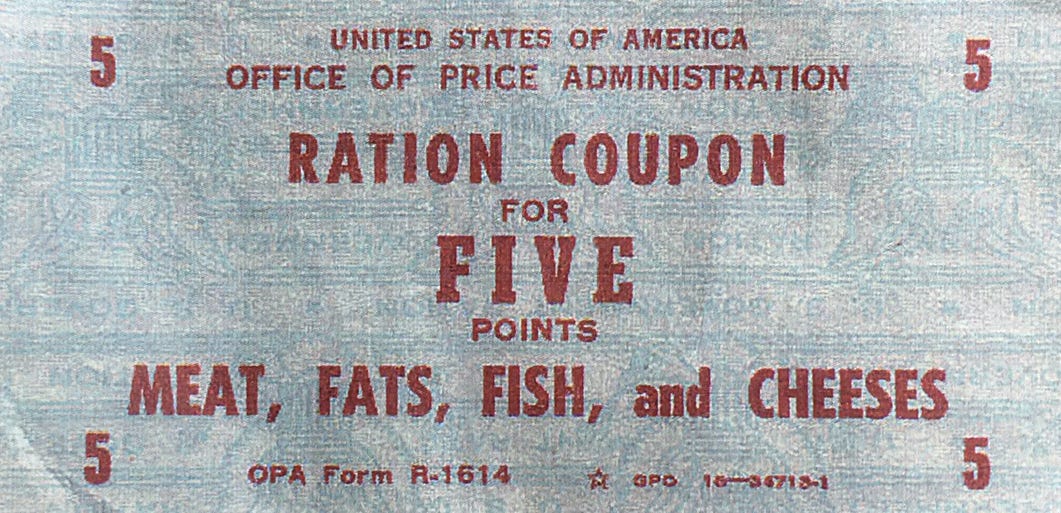
The good news is that if you find yourself with slightly expired shelf-stable foods, your local food bank is happy to take them. Or, you can still use them.
We all can do our share and help cut our own food costs if we pay attention to and learn to use food date labels.
It can be your own “Great Leap Forward.”
Published in General



Best if used by …
For whom?
I find the best resource for translating the use-by food labels is the manufacturers’ own websites.
As you have written so well, this is an area where regulation has not been helpful to consumers. Companies are afraid to say anything other than what the FDA tells them to say.
The sell-by and use-by dates are important to the retail stores and to consumers making the purchase. That’s a good thing. But once in the home, the most important information is how long the product will be safe after opening. That’s the information I have most often chased down.
I’m surprised that the UK is abandoning the use-by dairy product dates. On the other hand, it’s interesting to see the cream products last as long as they do. But milk? That’s interesting.
At the local food bank, canned food is good for 3 years after expiration date (14 months for tomato products). Medicines are generally good for years after the expiration date.
Waste not. Want not.
The food supply chains are split 40% to home/grocery and 60% to restaurant/institutional.
I can be rather obsessive about food waste (thanks mother) to the point that I’m regularly eating stuff I don’t want that other family members buy and forget about. It really irritates me because I like to plan my own meals. I often end up clearing a horrible mixture of defrosted boiled turnip and coleslaw.
My niece lived with me while she attended Duquesne University as she completed her doctorate in Pharmacy. So she was a bright kid, with a solid foundation in science. She would routinely throw out foods in our fridge, as soon as she noticed they “expired”. She would claim, “I won’t eat that, its expired!” I walked her through the logic. Would you eat it yesterday? Yes. What happens to it overnight in the fridge, that you won’t eat it today? Is there a chemical change, a physical degradation? Does it self-destruct like those Mission Impossible tapes? (Then I had to explain that, because she was too young…) She had no answer, other than the manufacturer put the date on there for a reason, and she wouldn’t question it. Her trust in authority has always been absolute.
Eventually, I just forbade her from throwing out my food, just because the dates had “expired”.
In my cooking, I make full use of “must go” foods. (hat tip to @she) Those are the veges and leftovers that are on the slippery edge of bad, but they work in soups, stews, roasts. Our dogs benefit from the remains, too. The bones, knuckles, skins, and fat get routinely cut up and added to their dry food. Very little gets into our roadside trash pick-up. We also have the benefit of composting peelings, etc. And if apples get mealy, the horses love em.
My only rule with canned goods is
“If the lid is inflatin’, don’t go a platin'”
I’ve tried to convince my beloved about these facts, but it does no good and she still throws out perfectly safe foodstuffs.
I remember my mother telling me about the starving kids in China, and I suggesting she send my food over to them. I only suggested that once. I generally don’t pay attention to expiration/best buy dates unless I open something and it is moldy or smells bad. Green lunchmeat gets tossed. The exception is milk. I can go a day or two over, but my husband won’t touch it. He is a retired pharmacist and we have a bunch of expired drugs that he says are still good and we keep in case of emergency. For the past few years we have been keeping track of food (and estimated cost) that we have allowed to expire, or leftovers that have been tossed. Just keeping track helps put a little more focus on eating what we buy.
I, too, offered to box up the liver and onions my mother was serving up as a care package to all of those starving children overseas. It was the proverbial “lead balloon.”
I find that eating first and reading the labels after is a great way to spice up your evening with some nervous anticipation.
I work in IT. A few of my gigs were work in the food manufacturing, logistics, preparation services. Very little margins. They are very creative with eliminating waste but also swapping out recipes with cheaper more cost effective ingredients. Sadly being on that end can really turn your stomach. There are a few practices that have caused me to stop eating at some restaurant chains.
Reminds me of the episode of “Yes, Minister” where James Hacker rides the sausage “controversy” all the way to No. 10. The Common Market wants to rename the British Sausage “the Emulsified High-Fat Offal Tube” because it doesn’t contain enough meat. Hacker reads off the ingredients and becomes ill. “I had one for breakfast!”
Fortunately, my mother didn’t like liver, so I wasn’t subjected to it other than at school. They would invariably serve liver with spinach drowned in vinegar. I’ve found lots of ways to make spinach tasty, but not liver.
The Chinese would have loved the liver as they seem to prefer organ meet or appendages. Chicken and pigs’ feet for dim sum is something I’ve tried, but have not picked up as a habit.
People who are fond of sausage should under no circumstances watch it being made.
Same with television.
Prosciutto takes a year to cure. And they have a sell-by date?
I have few compunctions about food I throw out because unless I or someone else turns it into useful energy, it’s going to end up in the ground anyway. I have always had a backyard septic system. It’s humbling. :-) :-)
I don’t think anyone should feel anxious about throwing food away, either because it is of questionable quality or no one in the household actually likes it.
Budweiser ran an entire advertising campaign on it’s “Born on date” while touting the fact that it’s “Beechwood Aged.”
My dad used to make sausage. My job was to blow air into the saltpeter preserved casings (intestines) because I really like salt. Blowing air into them made it easier to fit the casing on the hand cranked sausage machine. It was a big deal – but made with good meat and cooked spices all mixed up in a galvanized tub. He then smoked the sausages for a few days in a backyard smoking shed. I’ve tried other sausage, but nothing comes close to the flavor.
I’ve helped make sausage too, but I didn’t hold a high tech role such as yours. I mostly turned the crank for Grandma.
We have a Code of Conduct. Please refrain from any discussions of what turns Grandma’s crank…
Are you saying China doesn’t actually have rocket man overseas grocery delivery?
For all that food takes up a lot of landfill space, it also degrades into soil at a pretty fast rate.
Positively Rococo.
I particularly like the shepherd-engineer and the ocean-going tractor.
I find the people who complain the most about “food waste” tend to be the same sort of people who complained about fast food companies using “lean finely textured beef” (LFTB) in their burgers. The real goal is always the same: to demonize capitalism. These people don’t need to be consistent about it.
e.g. Jamie Oliver, who campaigns against food waste but who also (mendaciously) led the campaign against LFTB and urges people to cook “better” cuts of meat from scratch instead of reheating frozen processed meat products even though that would result in the “lesser” quality meats going in the trash (and would drive up the cost of “better” cuts due to increased demand).
Furthermore, all meat production, regardless of how sanitary, organic, and/or artisanal it is, tends to turn the stomach. Converting animals into food is an inherently distasteful process.
I have zero time for those who claim to care about food waste but who also refuse to use “every part of the buffalo”. It’s the epitome of bourgeois luxury activism.
Ackshully, it’s my understanding that organic waste doesn’t degrade all that well in a mixed landfill. There isn’t enough moisture and/or oxygen under a giant pile of mixed trash for the necessary microbes to thrive. Organic waste needs to be processed separately to get really good decomposition. At least, that’s my very non-expert understanding.
I have made sausage from killing the pig, butchering, grinding and onward. Had no issue with eating it. But manufacturing. whole different ball game.
Did I ever tell about the time I smashed a finger in the big sausage making cylinder when I was working on the cleanup crew at a Minneapolis meat packing plant?
Why yes, I think I have told that story. Never mind, then.
So long as it gets composted in the garden to help grow more food.
If it goes into a backyard septic system through the human digestive system, it will decompose just the same as if it went somewhere else.
For me, it was a diet issue. As soon as I realized that, if I didn’t use it by converting it to energy–and I don’t need that much energy–it was either going to be stored on me as unwanted fat or end up in our septic system, it seemed easier to throw it away. In other words, will I be using that food to accomplish work of some kind?
I try not to waste food or money, but if it comes down to my eating it or throwing it away, I don’t mind throwing things away. It’s sad to do that. It’s a lesson learned in how much to buy and cook, but in the end, it’s six of one, half a dozen of the other.
Matter is neither created nor destroyed. It simply changes form. At least that’s what The Science says. :-)